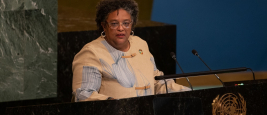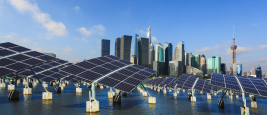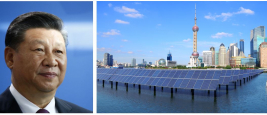Thibaud VOÏTA
Associate Research Fellow, Center for Energy & Climate
Research Interests:
- International climate and energy policies (especially in China and the EU)
- Energy efficiency
- Carbon markets
- Climate negotiations
- Biodiversity
An Associate Resarch Fellow at Ifri's Center for Energy & Climate since November 2017, Thibaud Voïta is a clean energy and climate policy expert and consultant, working on Chinese energy policies, sustainable energy issues and climate change. He has worked for more than 15 years on energy transitions and climate policies. He has managed partnerships accelerating energy transitions and involving multinational companies in 50 countries or so, has advised African governments on the implementation of their climate policies, and has supported Chinese facilities in their energy efficiency efforts.
He has defended a PhD on China’s energy policies in 2011 and has worked with the United Nations, the International Energy Agency, and private companies. He has lived in China (he speaks Mandarin) and in several European countries.
“Humanity has opened the gates of hell”, said the UN Secretary General Antonio Guterres during the Climate Ambition Summit, in New York, in September 2023, three months before COP28. The sense of urgency that he conveyed seems shared across the international community.
Finance is arguably the most sensitive climate negotiation topic. Different studies have shown that rich countries emit the majority of greenhouse gas (GHG) emissions, while the climate footprint of the poorest countries is much more limited.
The COP26, held at the end of 2021 in Glasgow, was emphatically heralded as “the last best hope for the world to get its act together”.
Since the 1970s, energy efficiency has gained visibility as a low hanging fruit – its potential impact on critical issues such as climate change, energy security, or competitiveness is now widely acknowledged, even more so in times of higher energy prices.
European buildings are old and too often inefficient, past policies have not delivered and the amount of investment into energy efficiency must be scaled up dramatically to meet the 2030 targets and ultimately, the carbon neutrality objective.
The Global Climate Action Summit held in September 2018 in California has highlighted the importance of cities for promoting clean energy solutions and for combatting climate change. While energy policies in most countries depend primarily on national governments, cities have the...
During its two sessions (lianghui) in March 2018, the National People’s Congress (NPC) announced China’s most important institutional reforms in the last 30 years. These changes occurred right after Xi Jinping consolidated his power and at a time when stakeholders working in the energy field...
In just a few years, China has gained the status of an energy efficiency champion.
As 2017 drew to close, China officially approved plans for its long-awaited national Emission Trading Scheme (ETS) and the National Development and Reform Commission (NDRC) outlined some of the implementation details[1]. Though it will be limited...












